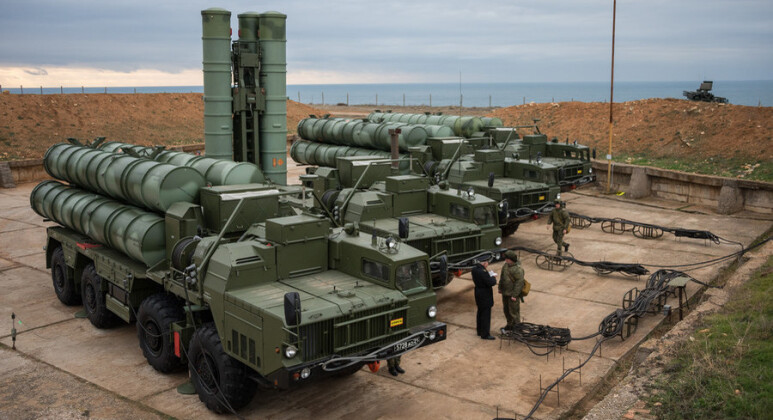News
Turkey to Receive a Second Regiment of Russian S-400 Air Defence Systems
The Turkish Armed Forces are set to receive a second regiment of Russian S-400 surface to air missile systems, with a number of Western and Russian sources reporting that a contract for the delivery has been signed. The decision is expected to spark considerable condemnation from Turkey’s fellow NATO member states at a time of high NATO-Russian tensions, and comes as Turkey has been denied permission to acquire modernised F-16 fighters from the United States following its eviction from partner status in the program to develop and produce the aircraft’s next generation successor the F-35. The delivery of the first S-400 regiment to Turkey led the United States to place economic sanctions on Ankara, with the second potentially leading to further sanctions. In a possible effort to avoid raising tensions with other NATO members, a Turkish official, cited by Reuters claimed that the second S-400 regiment is not part of a new contract, and that the contract for the original regiment included agreements on the second. “The purchase of a second batch was included in the original plan and the related contract. The process is ongoing and there are no new agreements,” he stated.

The S-400 provides Turkey with by far the most capable long range air defence system in the Middle East, with the Turkish Air Force having tested it extensively against its U.S.-supplied F-4 and F-16 fighters among other targets following its delivery in 2019. The system provides a 600km detection range against large aircraft, and can engage targets at speeds exceeding Mach 14 and at ranges of 400km – double that of its top Western competitors the Patriot and THAAD systems. S-400s have been relied on heavily to defend Russian airspace due partly to the contraction of the Russian Air Force since the collapse of the Soviet Union, with the systems able to cover large areas with a much lower operational cost than the equivalent fighter or interceptor units would. Each S-400 can engage up to 80 targets simultaneously, and carries over half a dozen classes of surface to air missile to provide multi layered defence. The system is nevertheless most effective when operating as part of a wider network with other advanced air defence systems – systems which Turkey, unlike Russia and the S-400’s other foreign clients, notably lacks.












